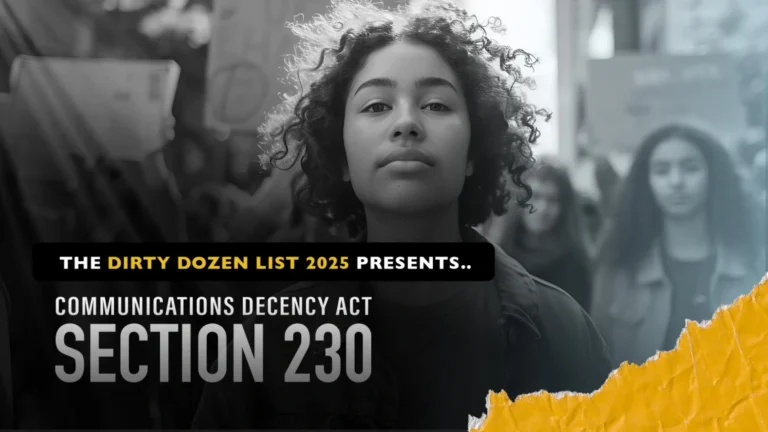This blog is part of a series. Read the rest of the series here:
- Ending Sex Trafficking by Combatting Sex Buying: New Research + Symposium
- How Sex Buyers are Identified and Their Involvement in Wide-ranging Criminal Conduct
He* hovered the mouse over the button, “Book a Girl.” A salacious grin stretched across his face as he envisioned what waited for him after clicking that button.
But just then, another image flashed through his mind. It was the memory of that one page in last week’s e-paper … The page that was filled with mugshots of local men … The page that read “Eight men arrested for patronizing brothels.”
Promptly, he jerked his hand back from the mouse and shut his laptop.
He couldn’t risk that. No way could he risk that.
*Composite story based on common experiences
Sex buyers don’t want to be exposed. In fact, according to Lt Rick Edwards with the Arkon Ohio Police Department, “The first thing attorneys for these guys say is, what can we do about the picture on the Web Site? Their clients are willing to do more time and pay bigger fines rather than having their photo [on display].” (Note that Lt Edwards said no deals are ever cut with lawyers to remove the photos.)
This is why disclosing the identity of sex buyers—as is often done for other crimes—acts as a powerful deterrence tactic. The efficacy of this deterrence tactic was highlighted by a recent report authored by Dr. Michael Shively and the National Center on Sexual Exploitation, and funded by the National Institute of Justice (NIJ). The report, entitled The National Assessment Of Demand Reduction Efforts, Part II, was published in 2023 and builds on previous research also funded by the NIJ.

The first study, conducted from 2008 to 2012 and entitled A National Overview of Prostitution and Sex Trafficking Demand Reduction Efforts, Final Report, reported on the systematic collection of data regarding law enforcement and community efforts to deter sex buying behavior throughout the United States. These efforts gave rise to the formation of a typology of 12 different methods used by law enforcement and communities to deter people (mostly men) from buying sex, or which sanction individuals who solicit sex acts. These tactics are called “demand reduction tactics” because sex buyers constitute the consumer-level demand that fuels the prostitution and sex trafficking marketplace.
The 2023 Part II study expands the typology to 15 demand reduction tactics and demonstrates their use by more than 2,690 US cities and counties seeking to deter sex buyers from engaging with prostitution and sex trafficking systems.
Identity Disclosure, as one of the fifteen demand reduction tactics, stands out as one of the most utilized in over 2,430 cities and counties. This tactic entails publicly releasing the identities of sex buyers that are caught in the act of purchasing sex. Sex buyers’ identities may be released through police press releases, websites, social media, and other news channels. Upon public exposure, sex buyers often become obligated to register on a sex offender list upon their release from custody. Inclusion in such a registry can significantly hinder the offender’s ability to secure stable employment and housing due to public visibility.
Essentially, law enforcement aims to use identity disclosure to deter potential sex buyers, as well as to discourage active sex buyers from reoffending.

Law enforcement agencies across different states in the United States have adopted innovative approaches to implement identity disclosure strategies. The following list details some of the ways in which sex buyers’ identities are disclosed.
- Employer Notification: Notifying employers of offenders that participated in sex buying. When an employer gets involved, offenders may be fired or given warnings.
- Letters: Sex buyers will receive letters in the mail from law enforcement agencies explaining their actions. These letters may be opened by the spouse or family members of the offender.
- Mobile Electronic Sign: Albany NY PD posted sex buyers’ names on a mobile electronic sign on a major highway in the city.
- Release of Brothel Client List: Law enforcement agencies infiltrate a brothel to obtain a list of offenders who bought sex, which they later release publicly.
- Sex Buyer Registry: In Florida, there is a sex buyer registry list which is the equivalent of a sex offender list. This list provides a publicly assessable list of identities, names, addresses, and photos
- Sharing Hearing and Trial Information with Community Residents: Baltimore County Maryland had a strategy of notifying local residents of the county when court cases of prostitution related causes were supposed to appear in court.
- Bumper Stickers: Sex Buyers must put a bumper sticker on their cars that says “stop sex offenders”
Overall, Identity disclosure is a powerful tool in the fight to end prostitution and sex trafficking by combatting demand. The consequences that convicted sex buyers face through identity disclosure reshapes societal norms while also discouraging future misconduct from potential sex buyers.


